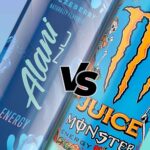Are you wondering if there is a way to get water into your body through your skin? Then you’ve come to the right place. Let’s dive in!
Key Takeaways:
In short, water doesn’t hydrate skin directly since skin cells are impermeable. The best strategy to hydrate your skin is to ensure general body hydration and to use moisturizers in extreme cases of dry skin.
Looking for more? Read on to learn about skin hydration, its importance, and how to keep it healthy and moisturized. We’ll also clarify some skin hydration myths so you can care for your skin like a pro.
Skin Hydration: Wet Facts Or Dry Myths?
Many myths make skin hydration confusing. But don’t worry because we’ll clarify skin hydration.
Myth: Drinking water directly hydrates skin.
Some believe that drinking water will directly hydrate their skin. Hydration is important, but the skin doesn’t absorb water like the digestive system does. Water initially enters our digestive system, then to the bloodstream and finally our cells, including skin cells.
Water doesn’t directly hydrate our skin. Even Dermatologists highlight that it is totally a myth that drinking loads of water will lead to hydrated skin. They say that there isn’t a direct correlation between drinking water and improved skin condition.
So, while drinking water helps keep our skin healthy, it does not directly hydrate it. That said, since drinking water does help in the overall hydration of the body, there isn’t any harm unless you’re overconsuming it just for the sake of skin care.
Fact: Skin doesn’t absorb water like our digestive system does.
The stratum corneum, the top layer of skin, keeps it moisturized. It acts like a barrier and prevents water loss. Also, the skin contains stratified squamous epithelial cells which are impermeable in nature.
As a result, even though a bit of water may enter the outer layers of the skin, it never enters that deep. And the moment you’re out of direct contact with water, that remaining water won’t take longer to evaporate in the environment.
So whether you’re inside the pool or in your shower, don’t assume that your skin is rehydrating and absorbing water. You will still feel thirsty whether or not you’re in touch with water.
Myth: Moisturizing hydrates skin.
People confuse moisturizing and hydrating, but they’re different. Creams and lotions prevent water from leaving the skin, keeping it supple and smooth. Hydrating involves adding water to the skin.
Now, I know you might be thinking: If skin can’t hydrate and absorb water then how come hydrating products work?
Well, hydrating products contain chemicals that pull and bind water to the skin, even though the skin doesn’t absorb water like the digestive system does. These compounds are specifically known as humectants.
Hyaluronic acid, glycerin, and aloe vera bind water molecules to the skin and help it maintain moisture.
A moisturizing product with humectants forms a layer on the skin that draws water from the air or deeper layers. This procedure hydrates and softens the stratum corneum by increasing its water content.
Hydrating products boost skin water content but don’t prevent water loss. And that’s where Moisturizers come in help.
Occlusives and emollients in moisturizers lock in hydration and prevent water loss.
Hydrating products use humectants to attract and bind water to the skin, whereas moisturizing treatments seal in that hydration and prevent water loss. For healthy, moisturized skin, you can use both types of products.
In a nutshell: Hydrating your skin increases water, while moisturizing prevents water loss.
Moisturizing and hydrating products are essential for healthy skin. Hydrating products with hyaluronic acid, glycerin, or aloe vera help the skin absorb water. After that, applying a moisturizer helps to seal in the moisture.
Knowing the difference between moisturizing and hydrating and utilizing both regularly can give you radiant, healthy skin.
Hydrate For Health: Benefits Of Skin Moisture
Skin hydration is vital for your well-being. It improves your skin’s texture and appearance, giving it a healthy glow. By prioritizing hydration in your skincare routine, you can reduce the risk of issues like eczema and acne.
Plus, maintaining skin moisture helps protect against environmental damage and premature aging. So, always remember to hydrate for a happier, healthier you!
Natural Skin Quenchers And Best Ingredients: Tips For Hydration
Selecting the right skincare ingredients is crucial for hydrating skin. This section will cover the best natural skin quenchers for a healthy, bright complexion.
Hyaluronic acid hydrates the skin well. This potent humectant keeps your skin moisturized and plump all day. Hyaluronic acid-containing products will make your skin seem smoother and more vibrant.
Glycerin also hydrates well. It locks environmental moisture within the skin’s outer layers. This softens and hydrates for a younger-looking complexion.
Aloe vera soothes and hydrates too. It soothes and hydrates with vitamins and minerals.
Pro Tip: Aloe vera and honey in a homemade face wash may improve skin. Honey, a natural humectant and antimicrobial, makes a soothing, moisturizing cleansing.
Balanced diets help moisturize skin. Vitamin- and mineral-rich milk and water-rich veggies like cucumbers may help your skin stay healthy and hydrated.
Drink enough water throughout the day to hydrate your body from the inside out and improve your skin.
Finally, be aware that hot showers and baths can dry out your skin. Use lukewarm water to preserve your skin’s moisture barrier.
Hydration Or Moisturization: H2O Difference?
| Hydration | Moisturization |
| Adds water to the skin | Seals in water to prevent loss |
| Uses humectants like hyaluronic acid | Uses occlusives and emollients |
| Pulls water from air or deeper layers | Forms a barrier on the skin’s surface |
| Makes skin feel supple and refreshed | Keeps skin soft and smooth |
| Focuses on skin’s water content | Focuses on skin’s oil content and barrier |
The Science Of Skin Moisture: Hydration Explained
What keeps your skin hydrated? Skin science provides the solution. Our largest organ, the skin, protects us from pollution, UV rays, and bacteria. To preserve elasticity and avoid dryness, cracking, and flakiness, it must retain moisture.
Hydration relies on the skin’s barrier. The stratum corneum—dead skin cells and lipids—is its outermost layer. This barrier limits water loss from deeper skin layers. The skin’s natural moisturizing factor (NMF) attracts water molecules to keep it hydrated.
Skin hydration may be improved using moisturizers. Substances like humectants, emollients, and occlusives help skin retain moisture. Emollients like shea butter and jojoba oil soften and smooth the skin, while humectants like glycerin and hyaluronic acid attract water molecules. Occlusives like petrolatum and dimethicone block water loss from the skin.
Understanding skin hydration science may assist you in choosing the right skin products, thus, help in maintaining healthy, bright skin by hydrating it.
How Long For Skin To Absorb Water?
We have established that skin does not directly absorb water. There are primarily two ways water can contribute to skin hydration. First, water naturally enters the skin cells after you drink it, as it circulates through the bloodstream.
Another method is by using hydrating products that increase the skin’s fullness due to their water-binding capabilities.
Typically, moisturizers and other creams will begin to show their effects within 1-2 weeks. However, the time frame may sometimes extend up to a few months, depending on the product.
As for whether water helps keep the skin hydrated, it is an ongoing process. You may not see an immediate change in your skin tone just after drinking a few glasses of water.
We recommend following a healthy routine and addressing all factors that contribute to healthy skin, from drinking enough water to keep body cells hydrated to consuming the right foods. By doing so, you will undoubtedly notice changes over time.










